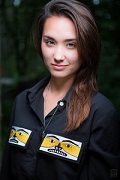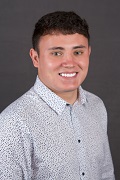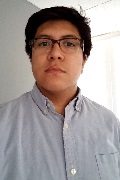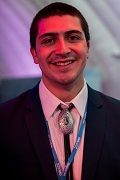MEET THE GEN-I MOVEMENT BUILDERS FELLOWS
Click here to learn more about the Generation Indigenous Movement Builders Fellowship.
 JoRee LaFrance, Apsáalooke (Crow)
JoRee LaFrance, Apsáalooke (Crow)
Nation, fights for clean water. As a technician for the Crow Water Quality Project, JoRee has identified uranium, E. coli, and coliform contaminants
in her tribal waterways. Given the history of industrial development near her tribe’s lands, JoRee recognizes the water contamination as a product of environmental racism and is committed to fighting back.
In addition to her work as a technician, JoRee strives to improve environmental literacy in her community, and coordinates events to bring people together around important issues. She worked with Indigenous fashion designer Bethany Yellowtail host a sewing workshop for women on her reservation, facilitated a winter clothing drive, and led a backpack giveaway for youth. JoRee also earned a Dreamstarter grant from Billy Mills’ Running Strong for American Indian Youth to preserve her tribe’s traditional stories by creating children’s books in the Crow language.
“When women are confident and loved, their homes are filled with confidence and love, then it radiates outside our homes into our communities and eventually to the land.”
 Maka Monture, Tlingit and Mohawk,
Maka Monture, Tlingit and Mohawk,
leads the United States Arctic Youth Ambassador Program. There, she guides youth in sharing their perspectives and priorities on Arctic Issues in way that engages international stakeholders. Maka’s tribal lands are on the front lines of climate change, and her people are feeling the effects in ways that span from infrastructure deterioration to mental health disparities.
Maka uses her seat at the table to provide a voice that ensures cultural and community sustainability in the ever-changing Arctic. Maka is passionate about supporting international Indigenous movements, including the movement to bring awareness to missing and murdered Indigenous women and girls.
“The benefit of joining broader social justice movements with other communities, is that it builds a network of allies/leaders all across turtle island of the leaders/learners/educators/future elders/protectors. We are stronger together. We always are.”
 Jarrette Werk, Aaniih Nakoda,
Jarrette Werk, Aaniih Nakoda,
is working to reclaim the Indigenous narrative through multimedia and journalism. Inspired by the #NoDAPL movement, Jarrette chose to pursue journalism to provide positive portrayal of Indigenous peoples in mass media. He is also a Native American Journalists Association Fellow. By bringing awareness to Indigenous issues and sharing positive stories, Jarrette works to shift the narrative from disparities-focused to strengths-based Native storytelling.
“The voice of Indigenous people is powerful, it just needs to be shared. I am dedicated to sharing our voice on a global scale. “

Austin Weahkee, Cochiti, Zuni and Navajo, is a grassroots organizer. He works to create change and advocate for Native families through
the Native American Voters Alliance. Austin travels throughout the state of New Mexico to create a new strategy for outreach that fits geographic, economic and cultural needs of the Native communities there. Additionally, Austin works with high schools to encourage youth to get excited about civic engagement.
“As young people, we are full of energy, and eager to make change for our community”.
 Michael Charles, Navajo,
Michael Charles, Navajo,
is committed to increasing Indigenous representation in higher education and climate activism. A PhD student at The Ohio State University, Michael is aware of current climate change negotiations and their impact on Native peoples. He believes that Indian Country has been made into sacrifice zones for climate change impacts. However, Michael is confident in the power of Indigenous people in uniting to carry forth solutions, citing the movement at Standing Rock as evidence and inspiration.
“Our indigenous cultures and practices bring solutions, as we come from long histories of understanding our connection to nature and acting in harmony with our Mother Earth.”

